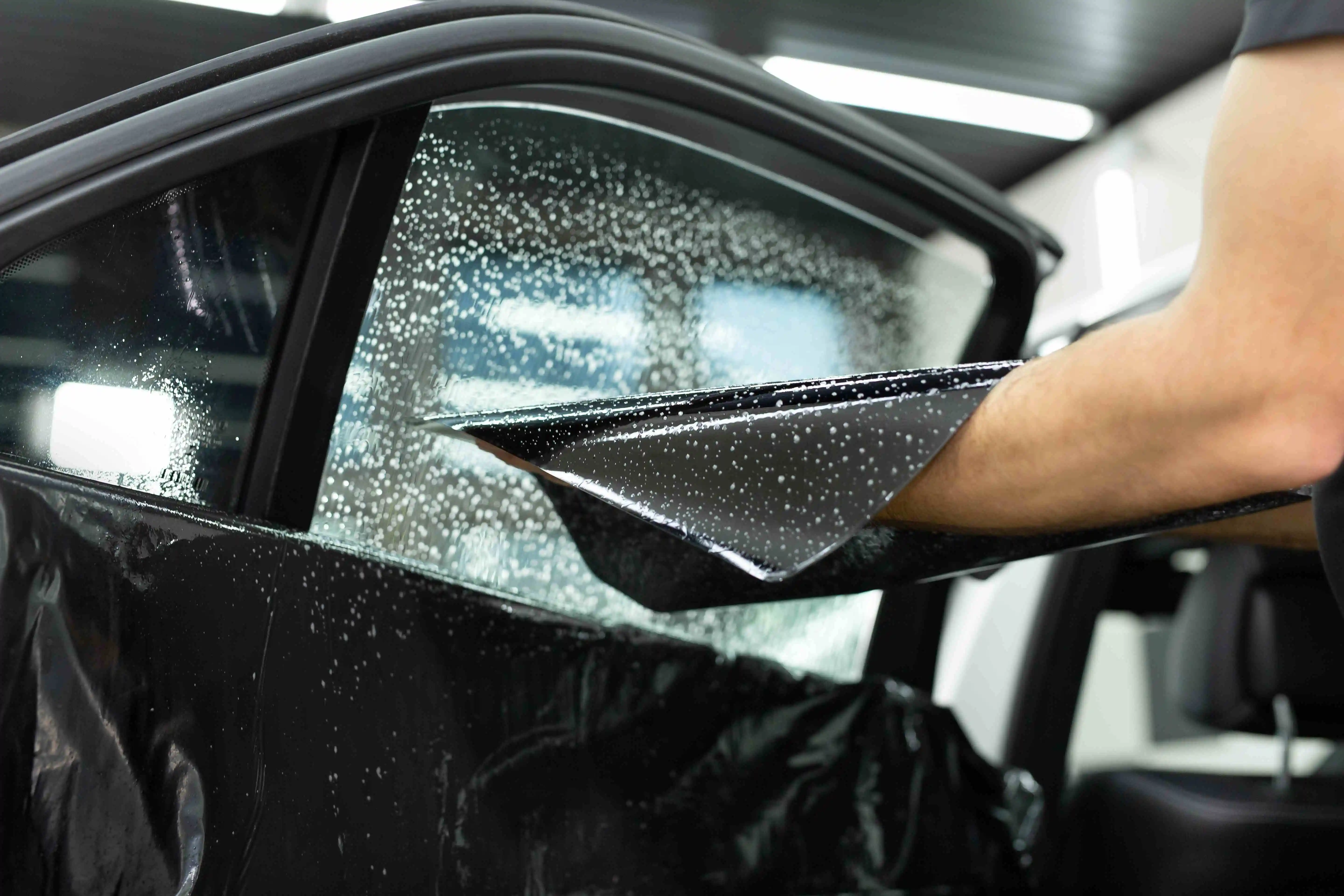Leading Reasons to Pick Expert Auto Window Tinting Providers
Leading Reasons to Pick Expert Auto Window Tinting Providers
Blog Article
Home Window Tinting Regulations and Standards: What You Required to Know Before Tinting Your Vehicle
Prior to proceeding with home window tinting for your car, it is vital to familiarize yourself with the varied legislations and standards that control this practice across different states. These regulations determine the permitted levels of color darkness, usually determined by noticeable light transmission (VLT) percents, and include particular specifications for front windshields focused on making certain roadway safety. Furthermore, particular territories may use medical exemptions for individuals with qualifying problems. Comprehending these intricacies can conserve you from prospective lawful implications, but what are the details policies in your state?
Review of Home Window Tinting Regulations
Home window tinting laws are often subject to variation across different jurisdictions, showing neighborhood regulations and safety and security considerations. These laws dictate the permissible degrees of tint darkness and reflectiveness on automobile home windows, making sure that vehicle drivers preserve adequate visibility while additionally protecting against dangerous UV rays and heat.
A lot of regulations categorize home window tinting based upon the Visible Light Transmission (VLT) portion, which suggests the amount of light that can travel through the home window. Normally, lower VLT portions symbolize darker tints. Laws often differentiate between the front, side, and rear windows, with more stringent constraints put on the front windshield to enhance security for both the driver and various other roadway customers.
Compliance with window tinting regulations is critical, as offenses can result in penalties, mandatory elimination of the tint, and prospective rises in insurance policy premiums. It is essential for car owners to acquaint themselves with neighborhood legislations prior to continuing with home window tinting setups.
State-by-State Color Laws
Understanding the certain home window tinting regulations in each state is crucial for vehicle proprietors looking for to adhere to the legislation. Each state in the united state has developed its very own collection of rules governing window tinting, which can differ significantly. These laws commonly determine the allowed levels of color darkness, the kinds of windows that can be tinted, and any medical exceptions that might use.
As an example, states like California have stringent constraints on color darkness for front home windows, while others, such as New Mexico, may allow darker tints. Furthermore, specific states mandate particular visibility percents for various windows, including the windshield, front side windows, and back home windows. It is vital for vehicle proprietors to acquaint themselves with their state's laws to stay clear of prospective fines or charges.
Additionally, some states may need an accreditation sticker to be put on tinted windows, indicating compliance with state legislations. Failing to stick to these regulations not just takes the chance of legal repercussions yet can additionally influence security and presence while driving. Vehicle proprietors must perform detailed study or consult regional authorities to make sure full understanding and compliance with state-by-state tint policies.
Allowed Color Types and degrees
Many car owners might be surprised to learn that permitted color levels and types vary widely across different states. Each state has developed its very own policies regarding the allowable darkness and reflectivity of window color, commonly determined by Visible Light Transmission (VLT) percents. VLT describes the amount of light that can travel through the tinted home windows; therefore, a reduced percentage shows a darker tint.

Furthermore, the kinds of tint products permitted can vary, with some states forbiding mirror-like or metallic finishes. It is necessary for vehicle owners to acquaint themselves with their state's details legislations to make certain compliance. Non-compliance can cause fines, necessary elimination of the color, or various other legal effects, making it essential to recognize these policies prior to waging installment.
Medical Exemptions for Tinting
While not all states give allowances for medical exemptions relating to home window tinting, those that do recognize the requirement for certain people to enhance visibility and convenience due to medical problems. Different medical conditions, such as lupus, skin cancer cells, and particular eye disorders, can make people particularly conscious sunshine. These individuals might call for darker tints to protect themselves from hazardous UV rays and glare.

It is necessary to keep in mind that despite a medical exception, there may still be limitations on the degree of tint enabled. Compliance with state laws makes sure that individuals are both safeguarded and within legal restrictions. Those thinking about clinical exemptions must contact their neighborhood Department of Motor Vehicles or equal authority to recognize the procedures and needs necessary to make an application for an exemption effectively.
Fines for Non-Compliance
Stopping working to conform with home window tinting regulations can cause significant charges, which differ by state. Police are equipped to provide citations for automobiles that do not follow the defined tinting regulations. These penalties usually include fines, which can range from small total up to numerous hundred bucks, depending upon the extent of the offense and the state in question.
In some territories, duplicated offenses may result in intensifying fines or added fines, such as required court looks. Non-compliance may demand the useful site removal of unlawful tinting, commonly at the owner's cost. In extreme instances, habitual wrongdoers might face suspension of their automobile enrollment until compliance is attained.
Furthermore, insurance policy effects may occur from receiving numerous citations for home window tint offenses. Insurance providers may check out such violations as a sign of riskier behavior, possibly resulting in raised premiums or trouble in insurance coverage.
To stay clear of these penalties, it is critical for vehicle proprietors to acquaint themselves with their local window tinting laws and make certain that their automobile complies (Window Tinting). This aggressive strategy not only avoids legal implications but additionally advertises road safety
Conclusion

Many guidelines identify window tinting based on the Visible Light Transmission (VLT) portion, which suggests the quantity of light that can pass with the home window. Conformity with home window tinting policies is crucial, as infractions can result in penalties, obligatory elimination of the color, and prospective rises in insurance coverage costs.Understanding the specific window tinting laws in each state is important for automobile proprietors seeking to comply with the legislation. These policies often dictate the permitted degrees of tint darkness, the types of windows that can be tinted, and any type of clinical exemptions that great post to read may use.
For circumstances, states like California have rigid constraints on color darkness for front windows, while others, such as New Mexico, might permit darker tints.
Report this page